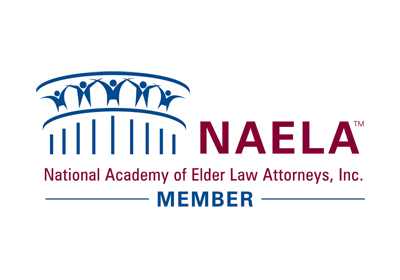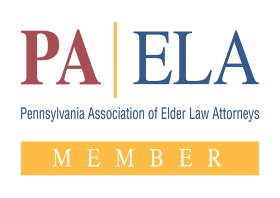Estate
Administration
Compassionate
Legal Guidance
Guiding You Through the Complexities of Settling an Estate
Whether your spouse has just passed away or you have lost your mom or dad, the emotional trauma of losing a loved one often comes with a bewildering array of financial and legal issues demanding attention. It can be difficult enough for family members to handle the emotional trauma of a death, let alone taking the steps necessary to get these matters in order.
Estate administration is the process of managing and distributing a deceased person’s assets and liabilities. It can be a complex and time-consuming task that requires legal expertise, attention to detail, and sensitivity to the needs of the bereaved family. That’s where our law firm comes in.
At our firm, we offer estate administration legal services to help individuals and families navigate the process of settling an estate. We understand that this can be a difficult time for those involved, and we aim to provide compassionate and comprehensive legal guidance to make the process as smooth as possible.

What makes us different from other Estate Administration Attorneys?
We understand that estate administration is not just a transactional process, but a deeply emotional and challenging time for families who have recently lost a loved one. We recognize that during this difficult period, our clients need more than just legal expertise – they need compassionate support and guidance.
What sets us apart from other estate administration attorneys is our unwavering commitment to providing personalized care and attention to each client. We approach estate administration with empathy, recognizing the unique circumstances and emotions involved. We take the time to listen to our clients’ stories, understand their needs and concerns, and tailor our services to meet their individual requirements.
We understand that the estate administration process can be overwhelming, with numerous legal and financial intricacies to navigate. That’s why we are dedicated to simplifying the process for our clients. We communicate in clear and jargon-free language, ensuring that our clients fully comprehend each step of the process and feel empowered to make informed decisions.
Furthermore, we understand that grieving takes time, and each individual requires their own pace for estate administration. We respect our clients’ timelines and work collaboratively with them, allowing them the space they need to grieve while guiding them through the necessary legal procedures. Our compassionate approach ensures that our clients feel supported and understood during this challenging time.
At Luschas, Naparsteck & Crane, LLP, we understand that estate administration can be a complex and time-consuming process. That’s why we have integrated the cutting-edge Clio for Clients portal into our services, providing our esteemed clients with a seamless and efficient experience like never before.
With the Clio for Clients portal, we are revolutionizing the way we collaborate and communicate with our clients during the estate administration journey. Gone are the days of exchanging endless emails and paper documents. Instead, we offer you a secure and centralized platform where you can access your file, review the progression of your matter, and stay informed every step of the way.
At Luschas, Naparsteck & Crane, LLP, our commitment to innovation and client satisfaction drives us to provide you with the best tools and technologies available. The Clio for Clients portal is just one example of how we strive to make your estate administration journey smoother and more transparent.
Ready to experience the benefits of our Clio for Clients portal firsthand? Contact us today to learn more about our estate administration services and how we can assist you in efficiently managing your loved one’s estate. Let us handle the complexities while you stay informed and empowered.
Streamlined Document Management
Say goodbye to stacks of paperwork and the hassle of keeping track of multiple copies. Our portal allows us to upload all correspondence and important documents directly into your client file. You can access them anytime, anywhere, ensuring that you are always up to date and well-informed.
Frequently Asked Questions
The frequency of updating your estate plan depends on various factors, including changes in your personal circumstances, financial situation, and applicable laws. While there is no one-size-fits-all answer, it is generally recommended to review and update your estate plan every three to five years or whenever significant life events occur.
Life events that may warrant an update to your estate plan include marriage or divorce, the birth or adoption of a child, the death of a beneficiary or executor, a substantial change in your assets or financial situation, a move to another state, or changes in tax laws that could impact your estate planning strategies.
Regularly reviewing and updating your estate plan ensures that it accurately reflects your current wishes and goals. It allows you to make any necessary adjustments, such as adding or removing beneficiaries, updating asset distribution instructions, appointing new fiduciaries, or addressing changes in tax laws.
It’s important to consult with an experienced estate planning attorney who can help you assess the need for updates and guide you through the process. They can review your existing estate plan, discuss any changes in your circumstances, and advise you on the best course of action to ensure your estate plan remains current, effective, and aligned with your goals.
Remember, estate planning is an ongoing process, and staying proactive by regularly reviewing and updating your plan can provide peace of mind and help protect your interests and the interests of your loved ones.
Long-term care planning involves developing a comprehensive strategy to address potential long-term care needs and associated costs. It aims to ensure that individuals have access to the necessary care while protecting their assets and financial well-being.
Estate administration refers to the legal process of handling a deceased person’s estate. It involves identifying and consolidating assets, paying debts and taxes, and distributing the remaining assets to beneficiaries in accordance with the deceased’s will or applicable laws of intestacy.
The personal representative, also known as the executor or administrator, has several responsibilities, including:
- Identifying and valuing the deceased’s assets.
- Notifying creditors and paying valid debts, including estate taxes and inheritance taxes.
- Managing and protecting estate assets during the administration process.
- Distributing the remaining assets to beneficiaries in accordance with the will or applicable laws of intestacy.
- Preparing and filing the necessary paperwork with the probate court.
While not mandatory, it is highly recommended to consult with an attorney experienced in estate administration. An attorney can guide you through the legal requirements, ensure compliance with probate laws, assist with complex financial matters, and help navigate any challenges that may arise during the process.




